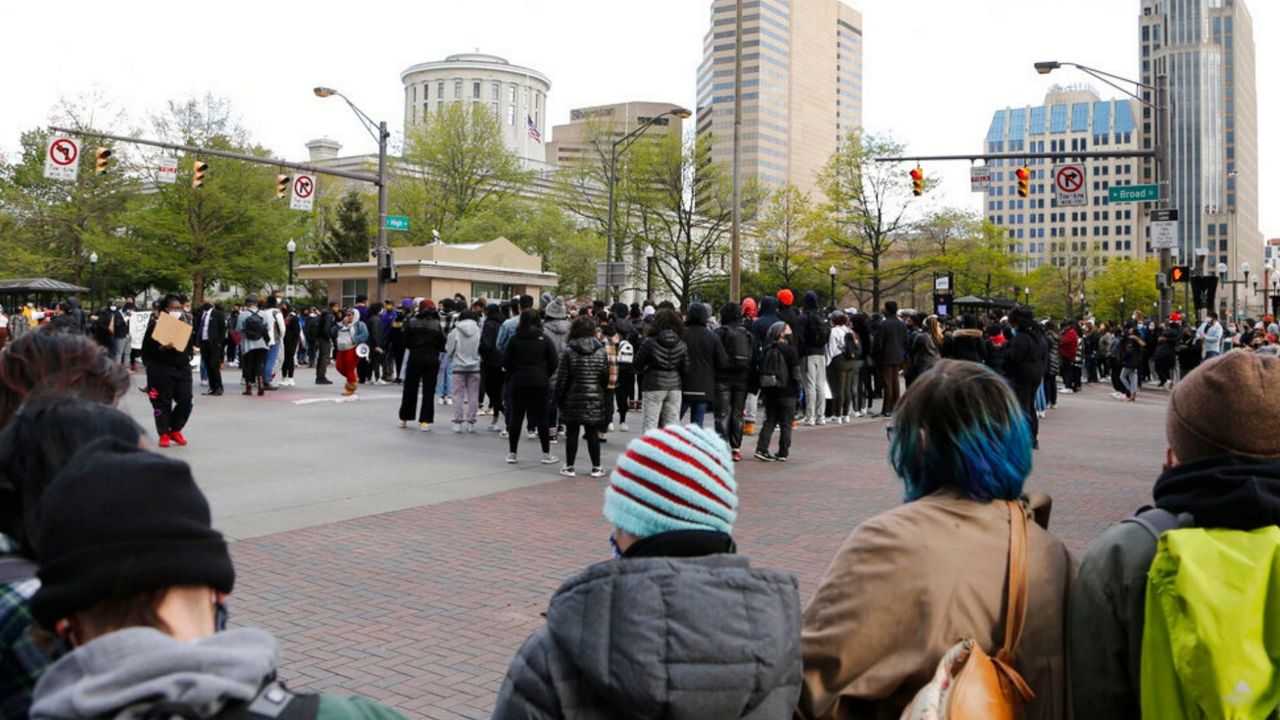COLUMBUS, Ohio (AP) — A GOP-backed bill aiming to expand the definition of obstructing justice in Ohio to include failure to follow a lawful order or diverting a law enforcement officer’s attention moved forward Thursday.
Republican lawmakers voted the House bill out of committee after weeks of intense testimony, where critics said the anti-protest proposal will be selectively enforced and disproportionately impact Black people.
If Derek Chauvin had been distracted by the crowd, “maybe George Floyd would still be here,” Marsita Ferguson, of the Black Lives Matter chapter in Lake County, wrote in her opponent testimony. “This is just a scare tactic to stop us from making change.”
The bill, introduced by GOP Reps. Jeffrey LaRae and Shane Wilkin, is one of four proposals by the majority party aimed at criminalizing or increasing penalties associated with behavior at protests in the wake of mass demonstrations that swept across Ohio last year in response to Floyd’s killing.
“The events that have transpired over the course of these past several months have demonstrated a necessity to amend our state’s obstruction of justice law that will further protect law enforcement officers and members of the general public,” Wilkin said upon introducing the proposal in March.
The bill has also received a lot of pushback from groups like the American Civil Liberties Union, who have called it an effort to discourage free speech and the right to protest.
LaRae said previously that the intent of the bill is not to infringe upon those rights but, “violence is not a protected right and should not be tolerated.”
Beyond Ohio, a number of states, most notably Florida, have decided to respond to the last year filled with racial injustice protests over police brutality by clamping down on protesters and providing police with more power and authority.
The Ohio bill would make failure to follow an officer’s order as well as diverting their attention a second-degree misdemeanor unless it creates the risk of physical harm to any person, in which case it would be a fifth-degree felony.
Many opponents of the bill also said the bill language was too vague and broad in its definition and could in turn be used to punish protesters or bystanders who take photos or videos of a police encounter or “taunt” an officer.
As a result of the criticism, a substitute version of the bill removed the words “harass” and “annoy” and added an amendment to clarify that it does not prohibit a person from using audio or video recording equipment to record a law enforcement officer in the course of their duty.
But advocates in the Black community, like Joe Mallory, president of the Cincinnati NAACP, said the legislation is unnecessary and “counter-productive to ongoing efforts and achievements toward better police and community relations.”
“This is a solution looking for a problem,” he added.
Earlier this month, the Senate passed a GOP bill that would increase penalties on protesters for alleged offenses against law enforcement. The bill will now work its way through the House criminal justice committee.
